The best carbonara and the best tripe too
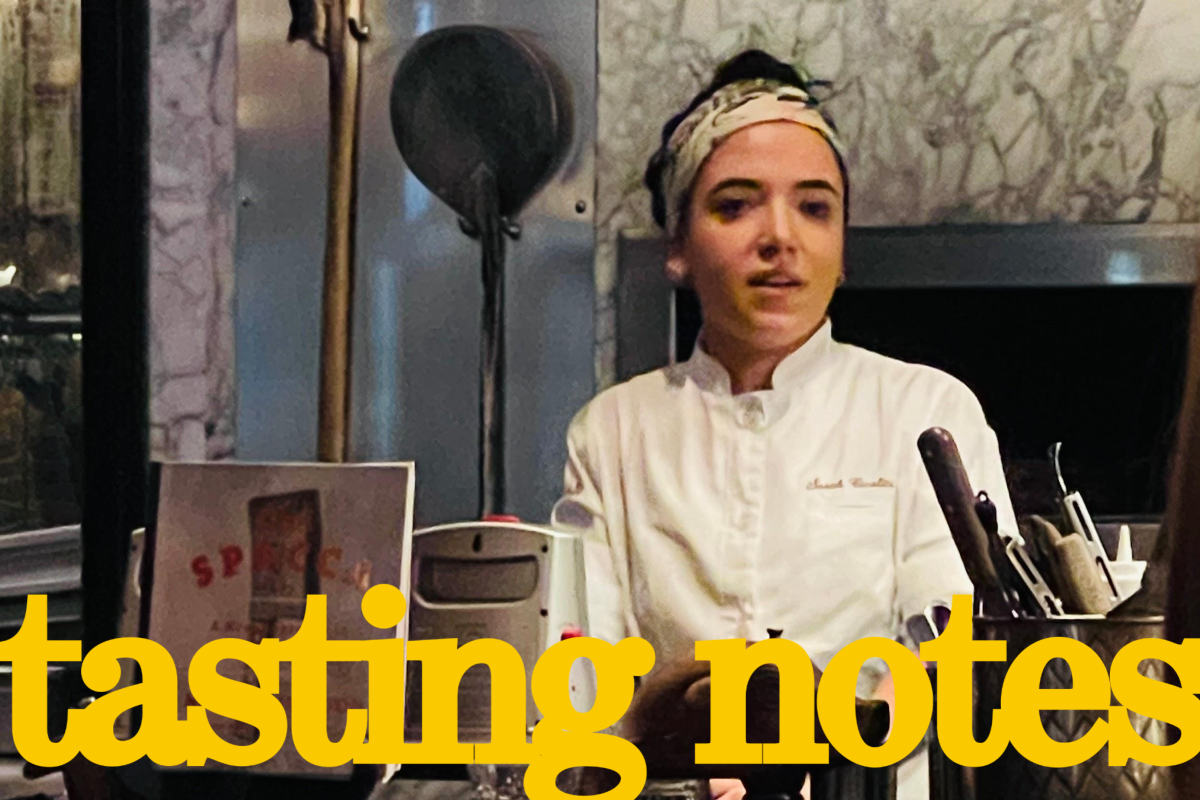
- Share via
Tripe love, mortadellacore, electric Alice Waters and the sandwiches there. I’m Laurie Ochoa, general manager of L.A. Times Food, with this week’s Tasting Notes.
Tripe, pork cheek and burnt flour
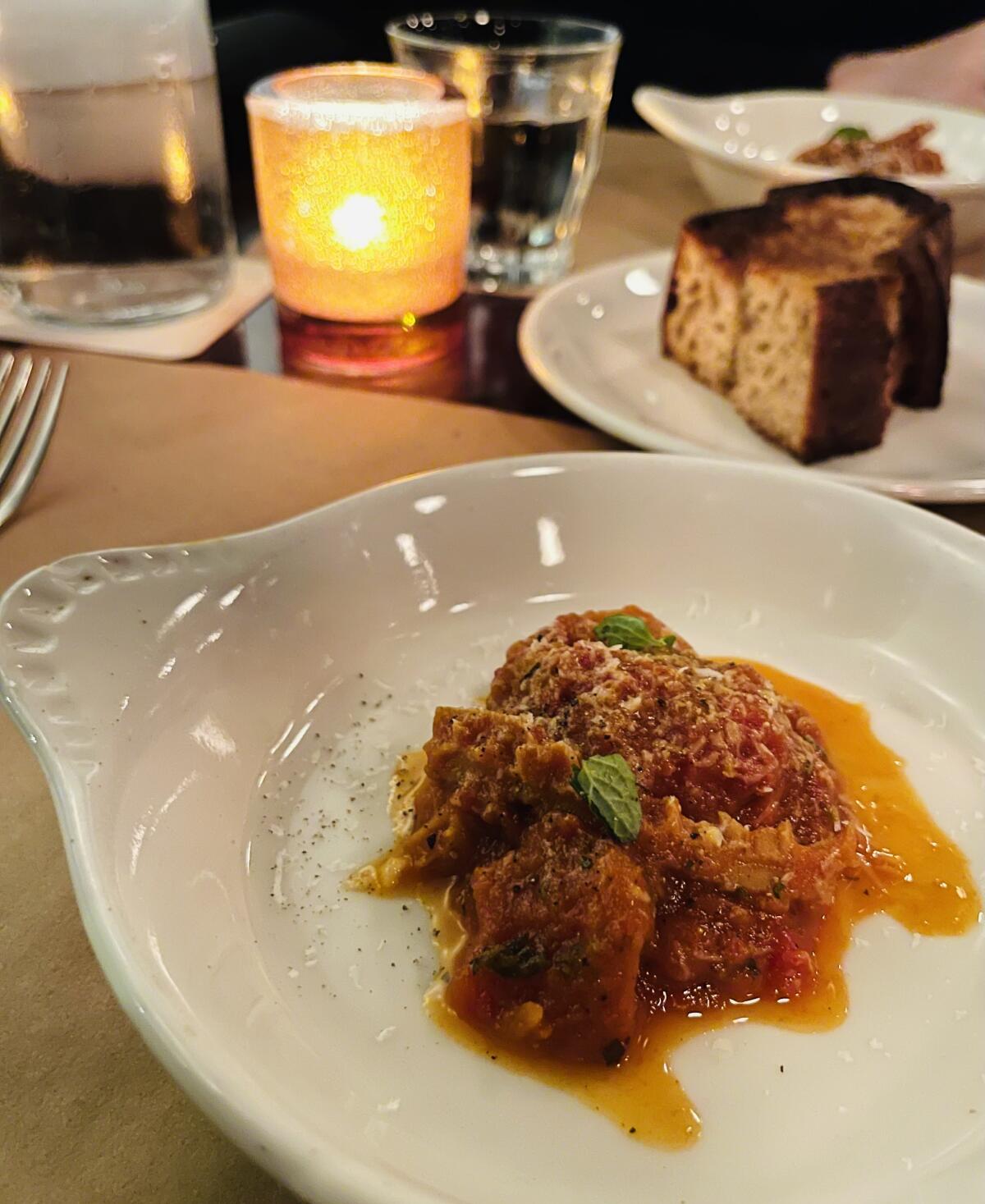
Anyone who has spent time eating with me knows that if tripe is on a menu, I will order it. I am a longtime fan of the fifth quarter. So when I heard that Sarah Cicolini, the chef and owner of the Rome trattoria Santo Palato, would be a guest chef at Nancy Silverton’s Chi Spacca, I immediately made a reservation. That’s because Cicolini made the best tripe dish I’ve ever eaten.
In Rome this summer, I had the chance to eat at Santo Palato, which is a bit outside the city’s central tourist core. But the restaurant is hardly unknown. If you saw the Rome episode of “Stanley Tucci: Searching for Italy,” you saw Cicolini making a frittata for Tucci with chicken heart, liver and gizzards. She also made him two dishes that appeared on the Chi Spacca special menu: an oxtail meatball dusted with cocoa and served with peanut and lovage sauce, as well as the classic trippa alla Romana, which is cooked with tomatoes and mint.
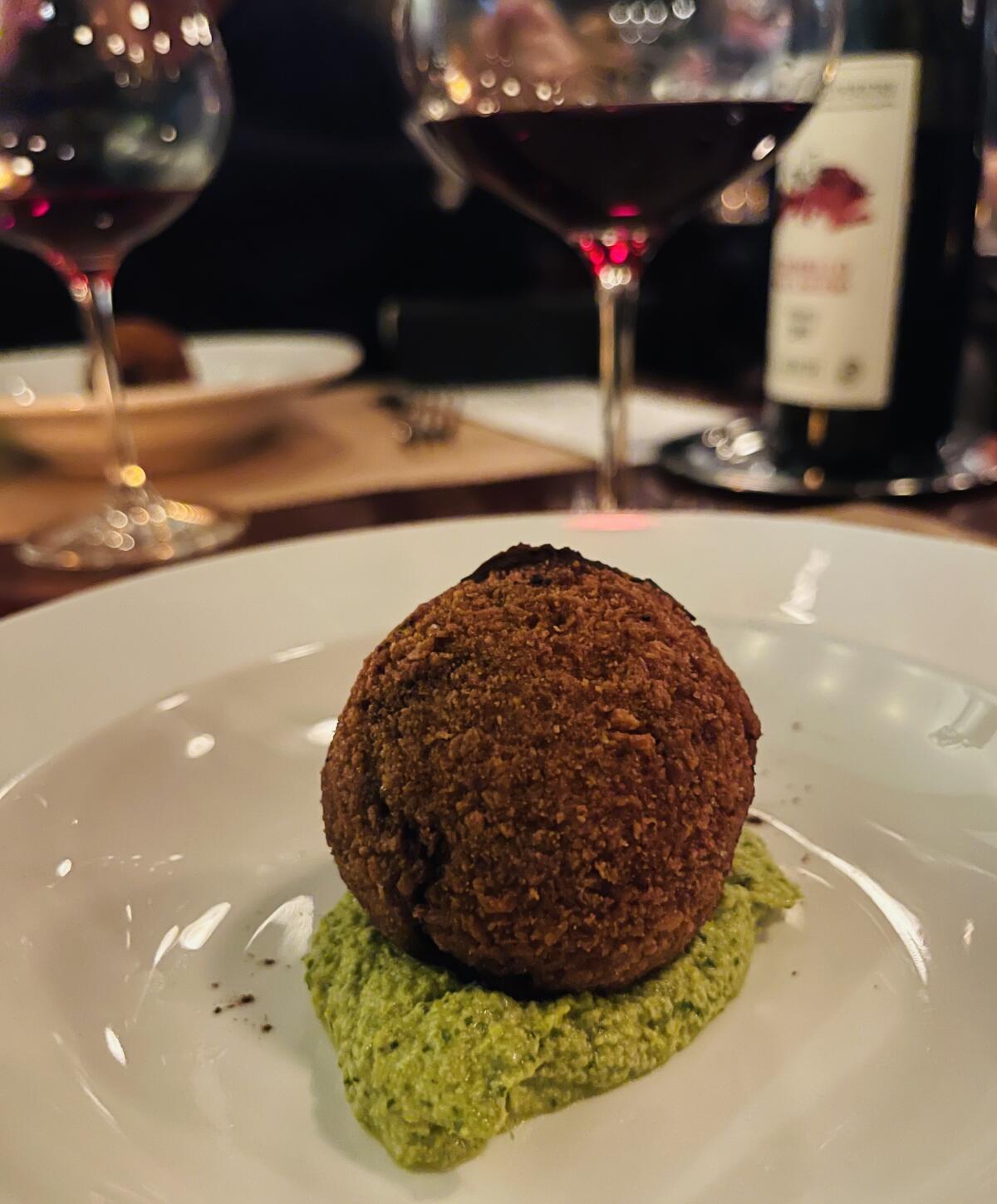
But as good as her Roman tripe was at Chi Spacca, it was another tripe dish at her restaurant in Rome that was unlike any I’d had before. It was sheep tripe cooked with capers, anchovies, vinegar, rosemary, olives and onion. Cicolini has a deep understanding of traditional Italian dishes and the confidence to create her own dishes that build on the classics. Consider her maccheroncino with duck and sea urchin — a combination that sounds improbable but was absolutely delicious.
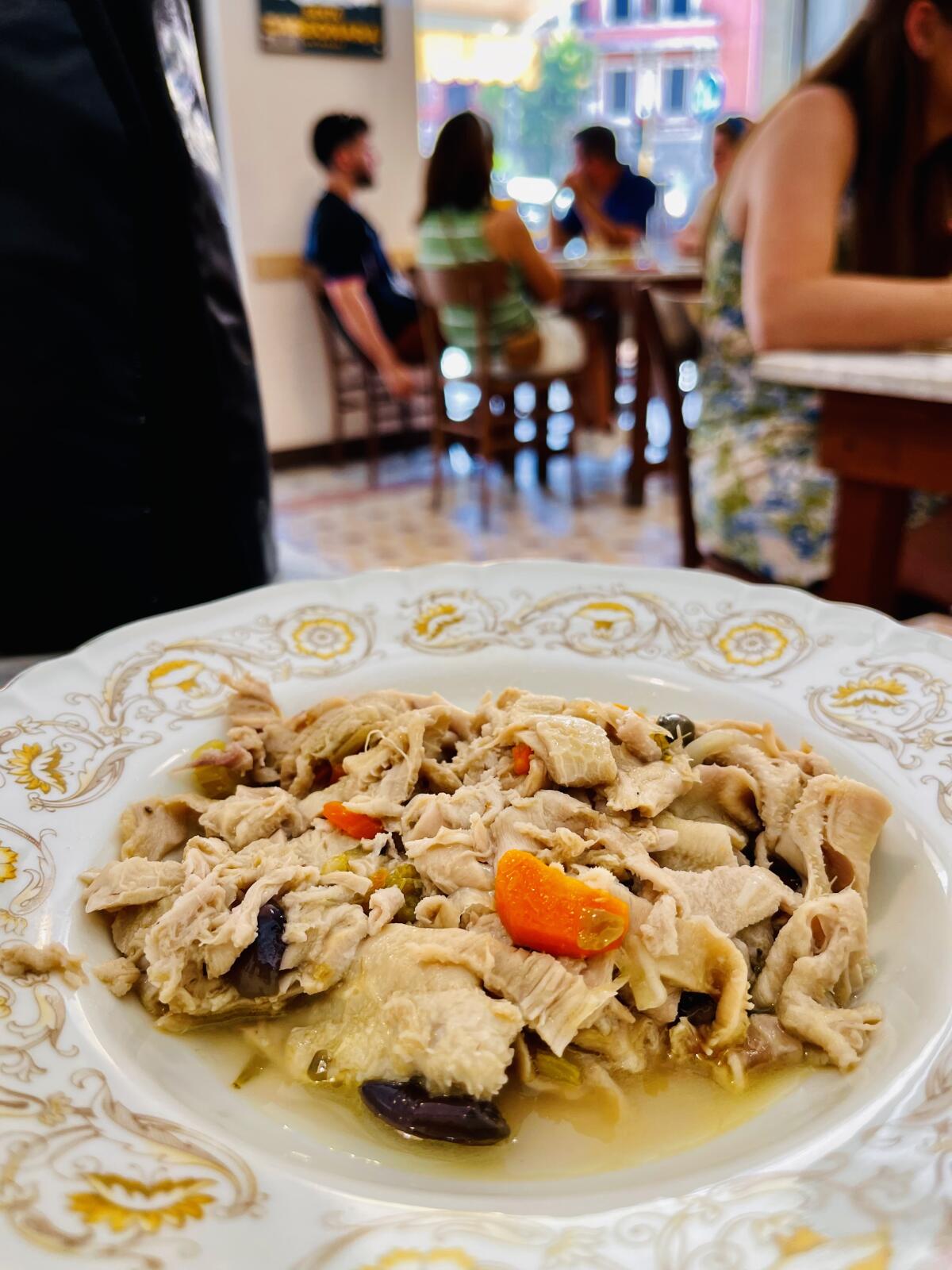
Neither the sheep tripe nor the duck-and-sea-urchin pasta appeared at Chi Spacca, but she did serve her own take on classic maritozzi, the classic cream-filled buns you often see around Rome. Hers were made with grano arso, the burnt wheat flour best known in Puglia. It gave the buns a deep cocoa color, the dessert version of her savory cocoa-flecked oxtail meatball earlier in the meal. She also used a bit of whole-wheat flour plus chopped green peppercorns and added pastry cream to the whipped cream, a trick Silverton liked because it added body to the cream.
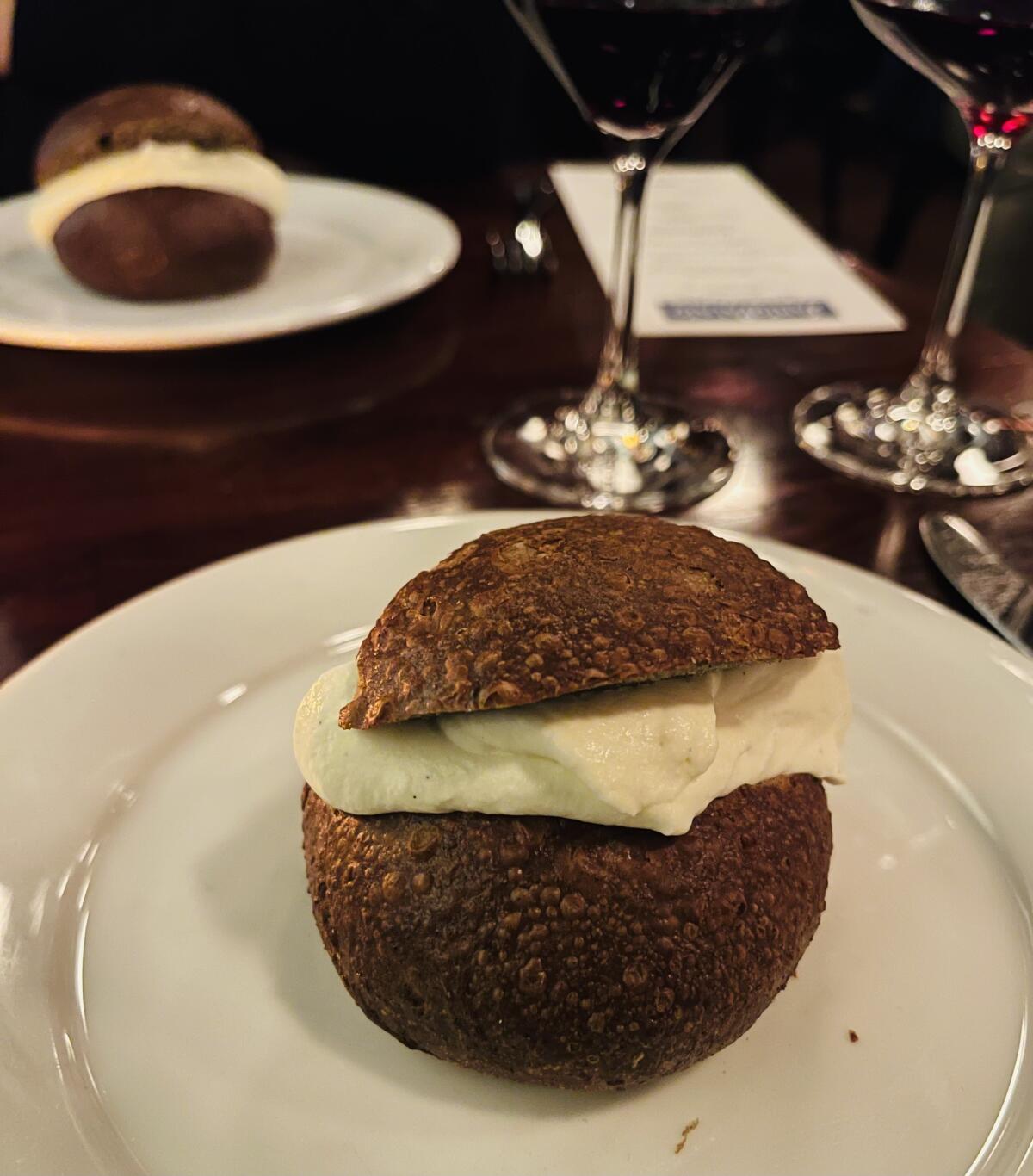
But the star of the meal was a spot-on pasta carbonara, a classic dish perfected by Cicolini with mezze maniche, which are like short rigatoni. Silverton was impressed that Cicolini rendered the guanciale, or pork jowl, low and slow, possibly for as long as 45 minutes. And though some use Parmesan for their carbonara, Cicolini goes with tradition and prefers pecorino cheese. She likes 100% pecorino, and only adds Parmesan to adjust for saltiness. At Chi Spacca, the ratio was 90% pecorino and 10% Parmesan. The result had many in the room declaring Cicolini’s carbonara the best they’d ever eaten. I still love her tripe best, but I would never say no to her carbonara.
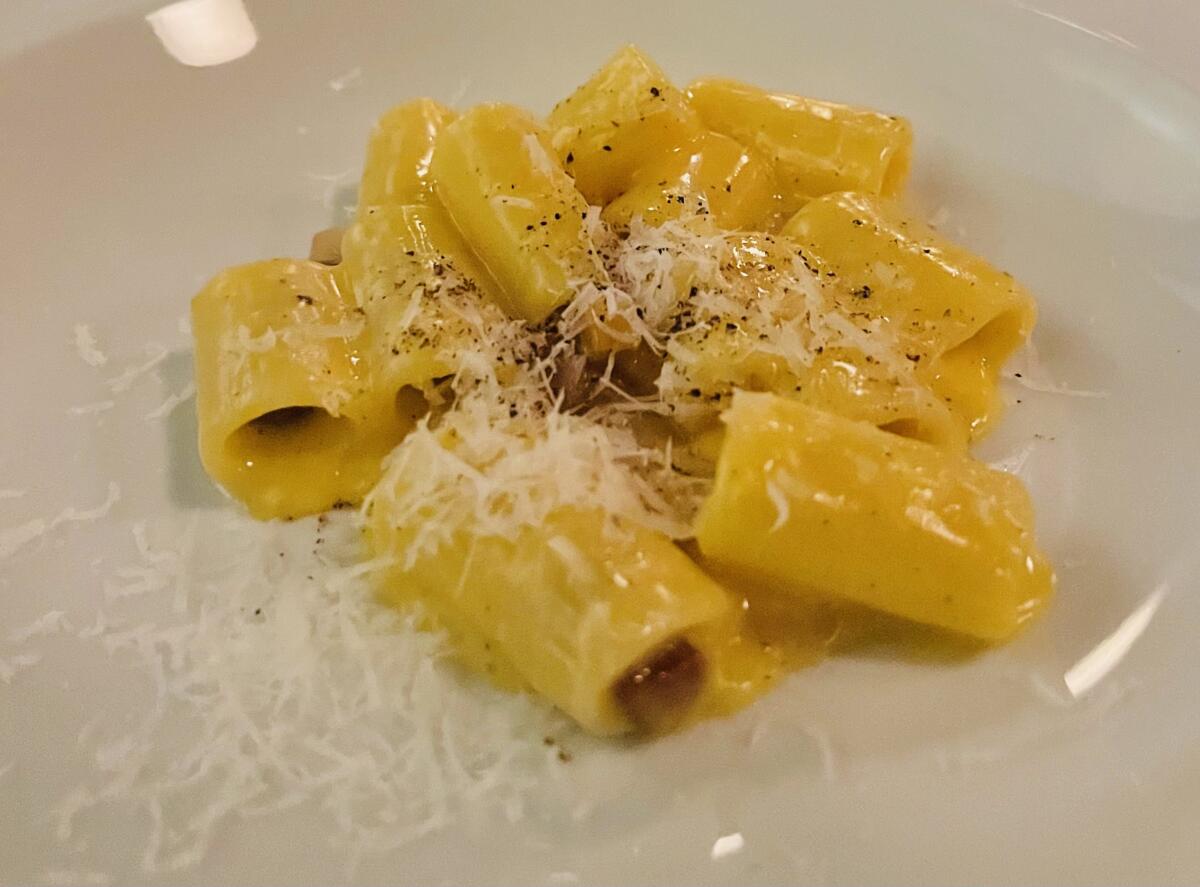
Enjoying this newsletter? Consider subscribing to the Los Angeles Times
Your support helps us deliver the news that matters most. Become a subscriber.
No baloney
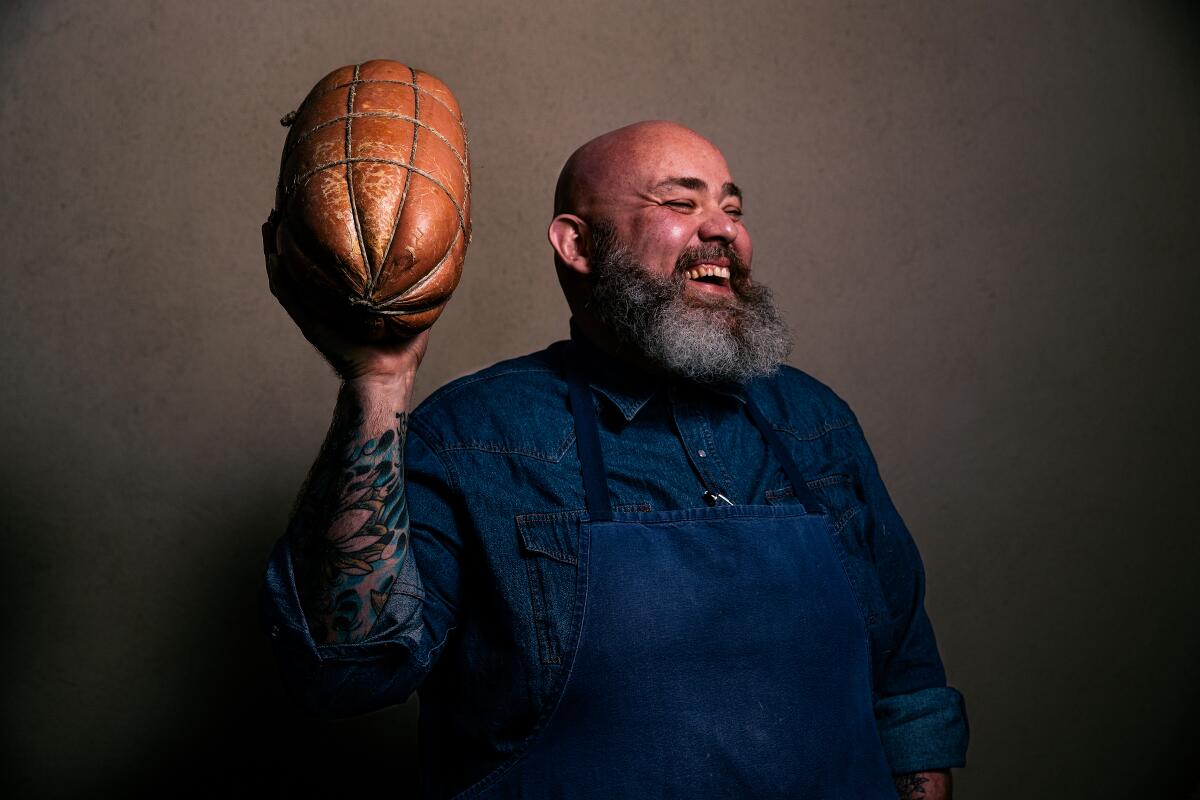
The first time I ate real mortadella, the whole sausage canon was rolled out on a cart with the splendor of a royal procession then ceremoniously sliced thin revealing translucent cubes of pork fat, arranged like a Modernist stained-glass window. I was in the heart of mortadella country, in the Reggio Emilia town of Rubiera at the bollito misto specialist Clinica Gastronomica Arnaldo. At that point, I had eaten my share of razor-thin prosciutto and even culatello, the heart of the prosciutto, but until that moment I had no idea that sliced pork could taste so delicate — nothing at all like the bologna many of us grew up eating between slices of spongy Wonder Bread.
Back home, I sought out mortadella like the slices I tasted in Rubiera. Although some classic Italian delis around Southern California stocked good mortadella, it would be several years before I ate mortadella in Los Angeles that came close to that first taste. As Stephanie Breijo writes in a story appearing in the Food pages of Sunday’s Weekend section, “The Italian deli meat that traces its roots to Bologna and as far back as the Etruscans ... [has] been gaining the kind of star power that salami and prosciutto have hogged for too long.”
Eat your way across L.A.
Get our weekly Tasting Notes newsletter for reviews, news and more.
You may occasionally receive promotional content from the Los Angeles Times.
Chef Samuel Schiffer, of Pasadena’s Semolina Artisanal Pasta and the clothing line Mister Parmesan calls this moment “mortadellacore.”
Some L.A. chefs, including Travis Hayden of the Virgil Village wine bar Voodoo Vin and Happy Mediums Deli chef and co-owner Shea Montanez are making their own mortadella. But avowed mortadella fan Evan Funke, chef of Mother Wolf in Hollywood and Felix Trattoria in Venice, sources his directly from Italy.
Have a question?
“I think it’s great that L.A. is having a moment,” Funke told Breijo, “but mortadella is the moment, always has been. I think it’s one of the most underrated salumi to come out of anywhere in the world; it’s underutilized, underappreciated, super versatile, and I think it’s the best.”
Sandwich life after Konbi
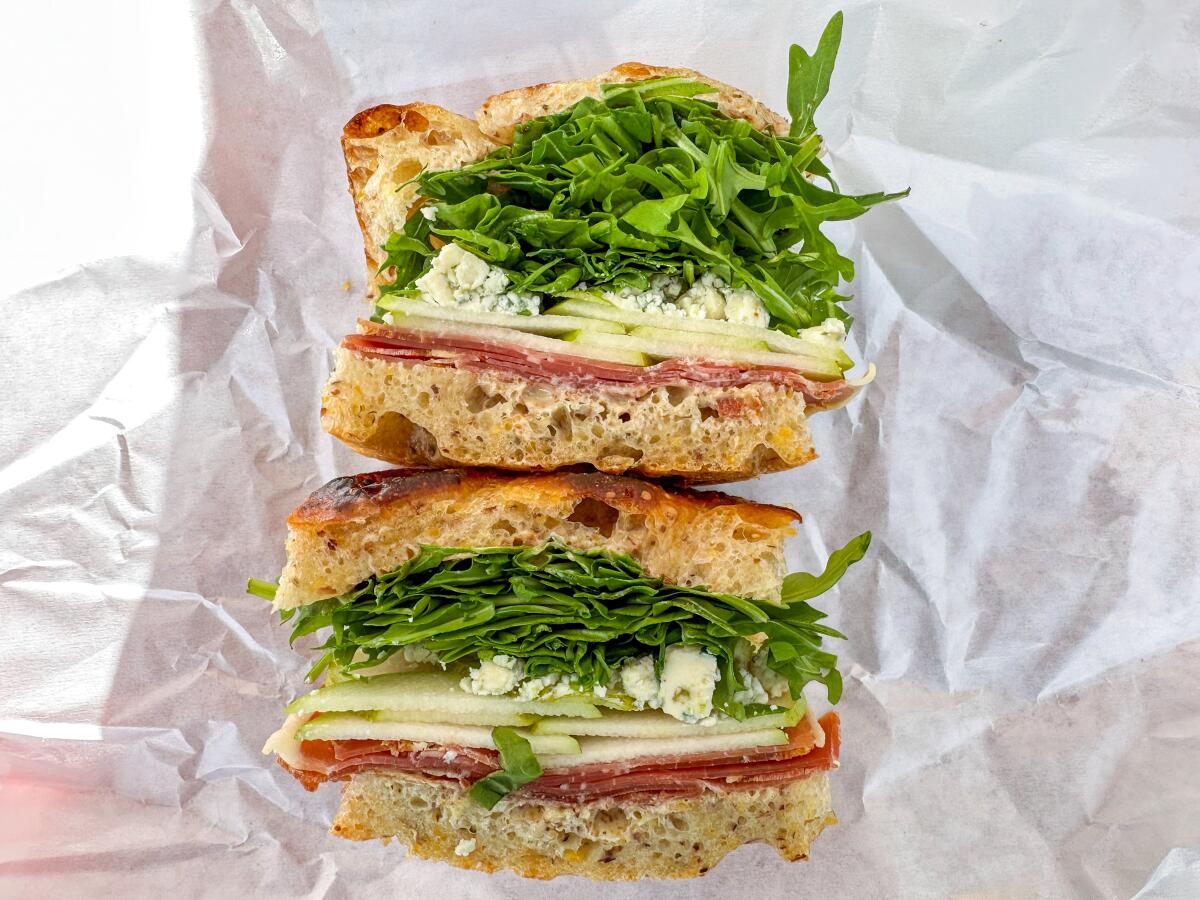
The day I heard the news last week that Konbi was about to close both of its locations — including its remodeled Echo Park shop that had only recently been reimagined as Konbi Ni with dinner and Japanese breakfast served at a beautiful sushi-bar-like counter — I headed to its Culver City location for one last gorgeous egg-salad sandwich. I also picked up pork katsu and eggplant katsu sandwiches to share with the Food team that had gathered in our El Segundo Times Test Kitchen for a photo shoot (look for Julie Giuffrida’s chocolate chip cookie recipe next month — based on your reader feedback). Konbi was one of my go-to takeout spots during the pandemic, so I’m grateful to its team for sandwiches and pastries that made our days at home more bearable.
But as restaurant critic Bill Addison writes in his latest story, the sandwich life of Los Angeles is thriving. He writes about nine new sandwich spots that show how “sandwiches are windows into the nostalgic past ... and foundations for original creative expression.”
Alice Waters goes electric
Earlier this month, in my story about Italian chef Franco Pepe, I wrote that the famed artisan pizzamaker has been using an electric pizza oven for events away from his Caizzo restaurant Pepe in Grani. “For me,” Pepe said, “after the wood-fired oven, the electric oven is next. It’s the ideal alternative.” With gas stoves being phased out for environmental reasons here in Los Angeles and around the world, many have been wondering how chefs who rely on gas and wood fire will adjust to electric stoves, which have been derided by many pro and serious amateur cooks, largely because they can’t get hot enough for many uses and the heat is harder to control. But some chefs are starting to make the shift. This week, Chez Panisse founder Alice Waters said that her Berkeley restaurant, where electric stoves would have seemed unthinkable a few years ago, will make the switch “as soon as we can.” ... “I’m absolutely ready to go electric,” she said. I’m excited to find out how her chefs will make the adjustment.
Restaurant news
— Stephanie Breijo talks with Anan Sugeno, son of Katsuhiro Sugeno, one of the brothers who founded the Tokyo-based tonkotsu specialist ramen chain Tonchin, which just opened a branch in Hollywood. One of the highlights of the new place is the “noodle room,” where customers can see the ramen being made.
— Breijo also reports on the nearly 20 L.A. chefs and restaurants that were named semifinalists this week in the James Beard Foundation Awards. Could this be the year that République’s Margarita Manzke — an eight-time semifinalist — will finally win the pastry chef/baker award?
Eat your way across L.A.
Get our weekly Tasting Notes newsletter for reviews, news and more.
You may occasionally receive promotional content from the Los Angeles Times.




